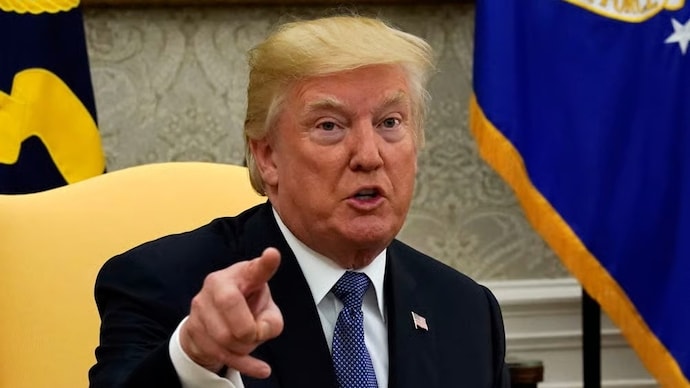
A 100% tariff on imported branded and copyrighted prescription drugs was declared by US President Donald Trump on Thursday. In order to escape the duty, companies must have US-based manufacturing facilities.
“I’m putting a 100% import tax on pharmaceutical drugs unless the companies are building plants right here in the United States,” Trump said on Truth Social. “Breaking ground, under construction, that’s the deal. No exceptions.”
Trump’s larger plan to boost American manufacturing and lessen dependency on foreign firms includes the statement.
Even though the strategy specifically targets branded medications, it has caused alarm globally, particularly in India, one of the world’s biggest pharmaceutical exporters.
WHAT IT MEANS FOR INDIA
More than one-third of the medications used in the US are exported from India, although the majority are generic medications, which are less expensive than branded ones and are no longer protected by patents. For the time being, Indian generic exports are mostly unaffected by Trump’s 100% tax since it targets branded medications.
Experts warn that investor confidence and market mood may still be impacted by the announcement.
“India being an exporter of generic drugs is unlikely to be impacted immediately. But the announcement may have a sentimental impact on pharmaceutical stocks. There is also a risk that future tariff measures could extend to generic drugs, which could have a more significant impact,” said Dr. VK Vijayakumar, Chief Investment Strategist at Geojit Investments Limited.
Even though the majority of Indian exports are generic and discretionary, Kranthi Bathini, Director of Equity Strategy at WealthMills Securities, added that any tariffs on essential medications could increase healthcare expenses and have an impact on profit margins. “The medium-term outlook for Indian pharma remains neutral until there is more clarity on how these tariffs will be implemented,” she said.
India’s primary exports are generics, so the immediate impact shouldn’t be too great, according to Rahul Ahluwalia, Founder-Director of the Foundation for Economic Development. However, this is a concerning indication for the future growth of India’s pharmaceutical sector. We should redouble efforts to get a trade deal with the US and EU to enable our industries to have access to large markets,” he added.
The US is the largest market for Indian pharmaceuticals, accounting for about 35% of exports, valued at USD 10 billion in FY25, according to the Pharmaceuticals Export Promotion Council of India. As a result, brokerage firm Choice Institutional Equities said that the 100% US tariff on branded and patented pharmaceutical products could have a negative effect on Indian pharmaceutical exporters.
Although branded medications are the main target of the levy, it is unclear if complex generics and specialized medications will also be impacted, which might provide difficulties for businesses that depend on US exports. Businesses that are building manufacturing facilities in the US, however, will be exempt, providing a chance to reduce their exposure to tariffs, the brokerage firm stated.
Companies and investors should closely monitor whether future actions target generic medications, which make up the majority of India’s pharmaceutical exports, according to analysts.
Other industries may be impacted by the Trump administration’s shift from country-specific tariffs to product-specific duties. Although only branded medications are now subject to this 100% duty, it is part of a larger US policy that uses tariffs to protect homegrown businesses and close the trade deficit.
ACTION ON DALAL STREET: KNEE-JERK
Dalal Street’s pharmaceutical stocks experienced a significant reaction to the news on Friday. All 20 of the Nifty Pharma index’s member firms saw losses of almost 2%.
Major stocks such as Sun Pharma, Cipla, and Dr. Reddy’s slipped sharply in early trade. The wider stock market continued its downward trajectory, which was already being exacerbated by selling by foreign institutional investors (FIIs).
According to experts, the decline is not due to imminent company risk, but rather to market anxieties. Given that India’s generic medications account for the majority of US imports, Dr. Vijayakumar pointed out that investors might view this as a temporary disruption rather than a long-term danger.
Analysts suggest keeping a close eye out for any shifts in US trade policy that would have an immediate impact for generics.
Although there may not be much of an immediate impact on Indian pharmaceutical exports, the declaration has brought attention to how susceptible international markets are to changes in policy.
For Indian exporters and investors, the next few weeks will be crucial as they watch how the US applies this 100% tariff and whether other actions expand its reach.
For breaking news and live news updates, like us on Facebook or follow us on Twitter and Instagram. Read more on Latest Business on thefoxdaily.com.






COMMENTS 0